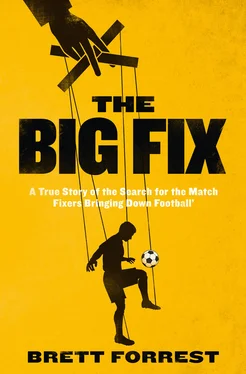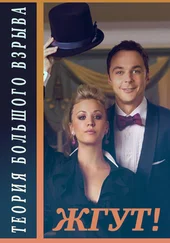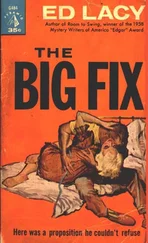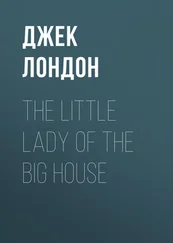Operation Last Bet rocked the Italian Football Federation, as fifteen clubs and twenty-four players, coaches, refs, and officials were implicated in match-fixing. Turkish police arrested nearly one hundred players, while the Turkish Football Federation excluded its club, Fenerbahce, from the UEFA Champions League, questioning how the team managed to win eighteen of its last nineteen games to take the domestic title. The Zimbabwe Football Association banned eighty players from its national team selection based on suspicion of match-fixing. Lu Jun, the first Chinese official to referee a World Cup game, was jailed for five and a half years for taking bribes totaling $128,000, enhancing the meaning of his nickname, the “golden whistle.”
In South Korea, prosecutors charged fifty-seven people with match-fixing; two players subsequently committed suicide, rather than face the shame. Two Brazilian refs were handed prison terms and the Brazilian Football Confederation was fined $8 million for their roles in a series of fixes. As soon as eight Estonians received a one-year ban, a court charged another dozen with fixing. German police recorded Croatian criminals discussing by phone their plans to fix games in Canada. The disgraced head of the Chinese Football Association is currently serving time in a penal colony for match-fixing. Hungarian police arrested more than fifty people for fixing, though before they could apprehend the director of a club under scrutiny, he jumped to his death. The Czechs are prosecuting two referees for fixing.
Macedonia is so corrupt that few bookies will take a bet on a game in its domestic league. The executives at a Bulgarian club, Lokomotiv Plovdiv, ordered their players and coaches to take a lie detector test after a loss. Georgian players, team owners, and bookies are behind bars for match-fixing. In Malaysia, a few dozen players are currently in custody. Kenyan, Lebanese, and Tanzanian refs have worked fixes. Polish authorities have prosecuted a dozen players for fixing. The Russian government has established a committee to eradicate match-fixing from its leagues. The prime minister of Belize ordered a match-fixing probe into the country’s football association.
Chinese and Italian organized crime have targeted the Belgian league for years. Bosnia’s league is targeted by Bosnia’s criminals. Switzerland banned nine players for fixing. Italian prosecutors pinned fixing charges on Gennaro “Rino” Gattuso, a popular, World Cup-winning midfielder and former star for AC Milan. Gattuso said he was prepared “to go into the town square and kill myself in front of everyone if I should be found guilty of such a crime.” Two scandals rocked English football this past fall, one involving Singaporean fixers, the other a former Premier League player. Germany is prosecuting the most famous fixing case of all, in Bochum, which has revealed that a network of criminal match-fixers has been manipulating football in every corner of the world for the better part of the last decade.
Could the state of affairs be this bad? Unequivocally, yes. Today, there are active police investigations into match-fixing in more than sixty countries, which is about one-third of the world. Half of the national and regional associations affiliated with FIFA have reported incidents of fixing. One can only imagine the amount of fixes that have transpired with only the perpetrators in the know. The fixing of international football matches has become as epidemic as drug trafficking, prostitution, and the trade in illegal weapons. This is happening in a sport where the players walk from the locker room to the field hand in hand with small children, as though football were a refuge of innocence and moral purity. Overwhelming evidence presents a contradictory argument: the most popular game in the world is the most corrupt game in the world.
Gambling is to blame. The market in sports betting has ballooned in the last decade, its illegal portion rivaling long-established criminal enterprises. Interpol claims that $1 trillion is bet on football games per year. Asian bookies suggest a much higher figure. The football industry itself – the TV contracts and sponsorship deals that comprise the business of the game – is estimated at an annual value of just $25 billion.
Unpoliced, driven by easy profits, match-fixing has grown out of control. Superior clubs lie down for inferior clubs that are trying to avoid relegation to a lower division of competition. Coaches, players, refs, and government officials collude for the fix. International qualifiers result in outrageous scores: 11–1, 7–0. The opportunity for easy profits drove early, creative attempts to manipulate results. On November 3, 1997, in an English Premier League match against Crystal Palace, West Ham scored to tie the game at two all in the sixty-fifth minute. Abruptly, the stadium lights went out. The same thing happened when Wimbledon played Arsenal a month later. A Chinese-Malaysian gang had paid the technicians at the stadia to cut the power when the game had reached the desired score. Enveloping greed has caused the players themselves to take severe measures to enforce the fix. In a 2010 Italian match, a goalkeeper allegedly drugged his own teammates at halftime so that opponents could easily outrun them.
The players are inconsequential. They are tools of the syndicate bosses who operate in the shadows. For the established criminals, international football has been a free zone of activity, a territory of endless opportunities for manipulation. Each of the nearly two hundred countries that FIFA recognizes has a professional league and a national team, which is classified into several age groups. The total worldwide number of national and professional football teams exceeds ten thousand. Multiply this figure by the number of players per team, then add referees, club officials, and federation administrators, and the entry points for a match-fixer are voluminous and as ever changing as a club roster from season to season. There is no centralized control, no disciplinary commissioner. International football is a loosely administered network of different languages and customs and laws and economies and currencies that connects the world, yet barely hangs together. This variance gives the game its special charm. It also allows dark motivations to flourish. Criminal fixing syndicates have infiltrated the game of football so fundamentally, manipulating the betting market to their advantage, that they have called into question the outcome of every match in the world.
The opening moments of the Kuwait-Jordan match elapsed at a brisk pace. There were several heavy tackles. A man sitting behind the FIFA investigators laughed, remarking that people from Kuwait and Jordan disliked each other. The referee made a questionable penalty call in the game’s twenty-third minute, when the ball ricocheted off the hand of an unwitting Jordanian player. Kuwait converted. The FIFA operatives looked at the Singaporean fixers in the crowd, but their body language revealed nothing. It didn’t have to. The evidence was in the numbers.
There are several ways to fix a match. One of the most popular is to wager on the total number of goals scored. If a bookie lists the over-under at 2.5, and a fixer bets on the over, he will direct his compromised players or referee to make certain that three goals or more are scored in the game. If he bets on the under, then he will order two or fewer goals.
The fixing syndicate operated on the in-game gambling market, which allowed for betting as a match progressed. At the opening of the Sharjah match, 188Bet, one of the largest bookmakers in the world, began taking a preponderance of bets that supported three goals or more. The 188Bet odds for three or more goals started at 2.00, or a 50 percent probability. At the match’s eighteenth minute, the match still scoreless, the odds for three or more goals decreased to 1.88, or a 53 percent chance. These figures revealed a telling detail. At the beginning of the match, with ninety minutes in which to score three goals, 188Bet calculated the chance of three or more goals at 50 percent. Paradoxically, after eighteen minutes had elapsed, the chance of three or more goals was now greater, even though there was less time – only 80 percent of the match remained – in which to score them.
Читать дальше











